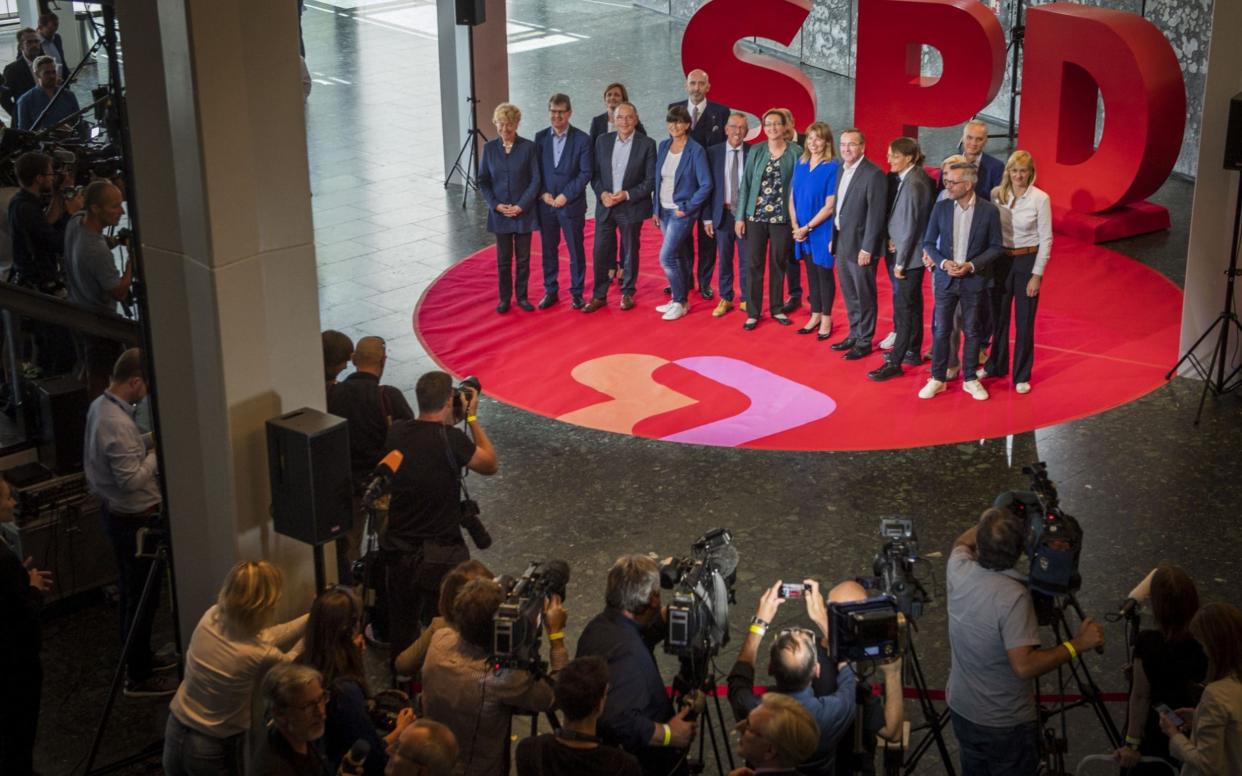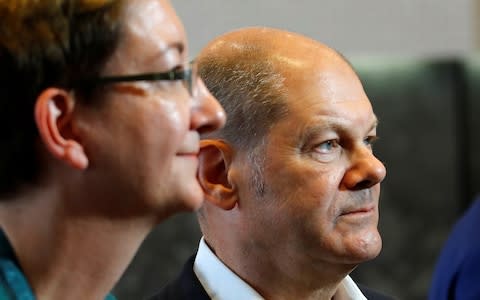Merkel's coalition partner begins race to choose new leader

The future of Angela Merkel’s government was hanging in the balance as her main coalition partner began the process of choosing a new leader on Wednesday.
Several of the candidates vying to take over as leader of the centre-Left Social Democrats (SPD) want to take the party out of Mrs Merkel’s coalition, leaving her without a majority in parliament.
But any challenge to Mrs Merkel will not come immediately. SPD members are set to choose from a field of 23 candidates in a marathon election process and the winner may not be clear until November.
The current favourite is Olaf Scholz, the finance minister and Mrs Merkel’s vice-chancellor. Billed as the continuity candidate, Mr Scholz favours remaining in the coalition, but his campaign has been undermined by reports he only agreed to stand reluctantly because other SPD ministers refused.
Also standing from within the current government is Michael Roth, the Europe minister, who earlier this year described Brexit as a “big s***show” caused by British politicians “born with silver spoons in their mouths”.

Under a controversial new rule almost all the candidates are standing in “gender equal” teams of one man and one woman, who would serve as joint leaders if elected.
Critics say the policy has led to the frontrunners plucking virtual unknowns from the ranks to serve as running mates.
Whoever wins will face the task of restoring the SPD’s fortunes. One of two major parties in postwar German politics, the SPD has seen its support collapse since entering a “grand coalition” with its traditional rival, Mrs Merkel’s Christian Democrat party (CDU) in 2013, and recently slipped behind the Greens in the polls.
Candidates opposed to remaining in coalition with Mrs Merkel include Walter Borjans, who says a grand coalition of the two major parties “is not the normal functioning of democracy”.
Karl Lauterbach, another candidate who wants to pull out of Mrs Merkel’s government, argues the grand coalition has driven voters into the arms of the nationalist Alternative for Germany party (AfD).
The first round of voting will take place in October, with the results announced days before the Brexit deadline on October 26.
If there is no clear winner a second round run-off will be held in November.

